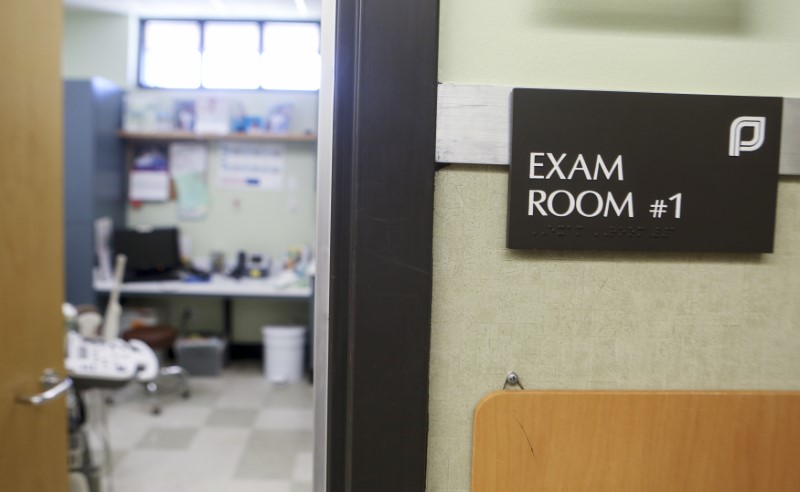By Sharon Bernstein
(Reuters) - Abortion rights advocates on Wednesday challenged laws restricting the procedures in three states, an aggressive push following a U.S. Supreme Court ruling that struck down a Texas law requiring abortions to be performed in surgical centers or hospitals.
The cases in Missouri, Alaska and North Carolina take aim at regulations requiring some or all abortions to be performed in hospitals or surgical centers, and in the case of North Carolina a ban on abortions after the 20th week of pregnancy unless there is a medical emergency.
"We are going to fight back state by state and law by law until every person has the right to pursue the life they want, including the right to decide to end a pregnancy," said Dr. Raegan McDonald-Mosley, chief medical officer of Planned Parenthood Federation of America, which filed the lawsuits along with the American Civil Liberties Union (ACLU) and the Center for Reproductive Rights.
In June, the U.S. Supreme Court struck down a Texas law imposing strict regulations on abortion doctors and facilities that its critics contended were specifically designed to shut down abortion clinics.
The 5-3 ruling held that the Republican-backed 2013 law placed an undue burden on women exercising their constitutional right to end a pregnancy established in the landmark 1973 Roe v. Wade decision.
Seeking to expand on that decision, pro-abortion groups filed the three lawsuits on Wednesday.
The efforts are also a shot across the bow to show the groups' determination to continue fighting for abortion rights even as they face the possibility that incoming Republican President Donald Trump may work with the Republican-dominated Congress to try to further restrict abortion.
"We will use all the tools at our disposal - and that includes the courts - to ensure that folks' constitutional rights are protected," said Jennifer Dalven, director of the ACLU Reproductive Freedom Project.
All three lawsuits filed on Wednesday say the states' restrictions are based on medically unnecessary precautions, such as Alaska's requirement that blood supplies be available on site, or Missouri's that all take place in hospitals or surgical centers.
Asked for comment on the cases, a spokeswoman for Missouri Attorney General Chris Koster said that the state had not yet been served. Representatives of Alaska Attorney General Jahna Lindemuth and North Carolina Attorney General Roy Cooper declined to comment.

The Alaska lawsuit was filed in Superior Court in Anchorage, while the North Carolina and Missouri lawsuits were filed in federal court in those states.